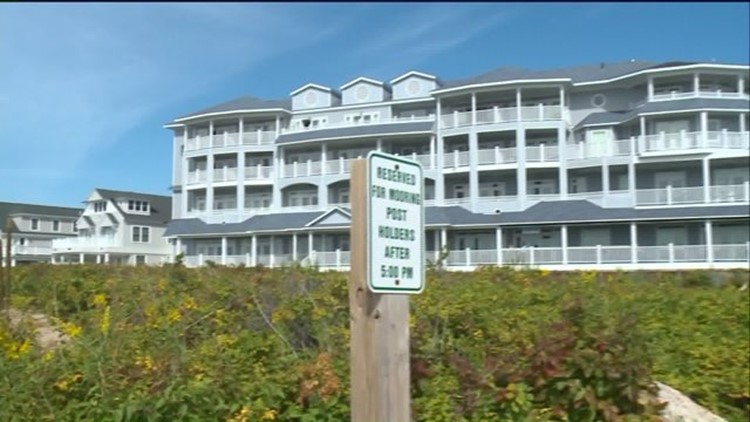MADISON –The recently rebuilt Madison Beach Hotel is booming with business and, according to some nearby residents, arrogance.
In 2008, before being given the go-ahead to replace the 200-year-old hotel, the owners agreed to a 24-point zoning variance.
One of the conditions: music could not be plainly audible at a distance of more than 50 feet in any direction from the property line. Due to a summer concert series that the town hosts, it’s condition often striking a sour note with residents of the beachfront community.
“We move our dinner inside because we can’t have a conversation,” said Emile Geisenheimer, a member of the Madison Beach Preservation Association.
“We're hearing it more than a half a mile down the way,” says Cecilia Pfister, who is a fifth-generation resident of the neighborhood and lives three houses to the east of the hotel.
Residents say there are plenty of other public parks in town ideal for live music. But, Town Planner David Anderson says the 50-foot rule pertaining to music is among several curious conditions imposed on the hotel.
“We're having a conversation and someone 50 feet from us could certainly hear us,” said Anderson. “So, that's a condition that's extremely difficult to enforce.”
But residents say listening to a conversation is completely different than being a subjected to a concert.
Pfister says she was grossly offended two years ago when during a neighborhood meeting with the hotel manager, he admitted the hotel doesn't adhere to the trash storing variance.
“They are permitted to store recyclables and cardboard outdoors, but must keep trash inside, until the collection truck comes. They told us ‘we haven't done that since day one.’”
In April, of 2014, the hotel filed a petition with the Madison Planning and Zoning Commission seeking a regulation amendment zone boundary changes, which made residents nervous.
“They wanted to be free to have events, public events, anywhere in the district on any night they wanted to,” said Geisenheimer.
And, they were concerned that the hotel wanted to expand its footprint to become a larger event facility. But, Anderson, who’s been town planner for three years, says residents need not worry.
“There's no office park that's going to be able to apply under this district or anything like that.”
Regardless, the prospect of opening the door to a hotel that has already not complied was worrisome to residents. So, the Madison Beach Preservation Association sued the town to put a stop to the West Wharf Zoning District. Last week, a New Haven Superior Court judge ruled the “change of zonal classification clearly appears to be for the sole benefit of the hotel in the middle of a large residential area. This would be detrimental to the owners of residences in the area.”
Geisenheimer was pleased.
“Spot zoning is illegal. You're not supposed to have a zone created for the benefit of a single property owner,” he said.
Anderson contends the new zoning district is necessary because the hotel is presently stuck under the thumb of the Zoning Board of Appeals, which he says makes it hard to do business.
“If they wanted to change, let's say the color of the roof from that gray to a little bit darker shade of gray, they'd actually have to come to the Zoning Board of appeals to try to get a variance and claim a hardship, and that's extremely unusual.”
The new zone would place the hotel under the control of the Planning and Zoning Commission.
“It allows them to move forward in the future in kind of a logical manner like any other business can in town,” says Anderson.
Another plus to new zoning, according to Anderson, would be a proposed land swap. The hotel would give the town control of a sliver of beach it presently owns in exchange for the lawn area in front of the hotel, where the outdoor concerts are currently staged. Presently, the town’s Parks and Recreation Commission simply issues permits to the hotel to hold these concerts.
With the creation of the West Wharf District, Anderson contends, the Planning and Zoning Commission would handle oversight , including monitoring of the noise level.
First Selectman Fillmore McPherson says the town is “consulting with our attorneys right now” to determine if there will be an appeal of the September 22 Superior Court judgment.



